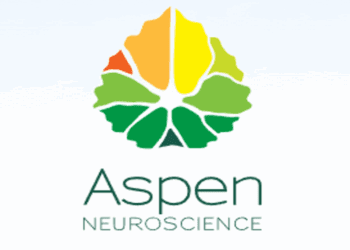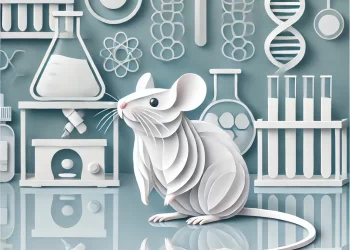Study: “Probiotic neoantigen delivery vectors for precision cancer immunotherapy”
Publisher: Nature
Published date: October 2024
PubMed link to study: https://pubmed.ncbi.nlm.nih.gov/39415001/
Recent research published in Nature Aging explores how engineered probiotics can deliver cancer-specific proteins to activate immune responses. Effectively creating an anti-cancer vaccine that is designed to target specific individual cancers.
This method may help enhance immune function, particularly as we age, by improving the body’s ability to fight diseases like cancer. This development could represent a step forward in addressing the rising challenge of cancer in our population, but also the immune decline commonly associated with aging.
Feel welcome to share your own thoughts on this research in the comment section below as well. I will be happy to discuss and learn more about how you see its potential in this field.
Engineered Probiotics for Immune Enhancement
In recent scientific progress, researchers have developed a way to use engineered probiotics to improve immune responses against cancer. Specifically, these engineered bacteria can deliver neoantigens, which are proteins unique to cancer cells, to activate the body’s immune cells.
While this work is primarily focused on cancer treatment, the implications for aging are significant, as boosting immune function could potentially slow down immune decline that often accompanies aging.
Immune System and Aging
The immune system plays a crucial role in maintaining health, but it naturally weakens as we age, a process called immunosenescence. This decline reduces our ability to fight infections and increases susceptibility to conditions like cancer. Finding ways to strengthen the immune response, particularly in older adults, is a key focus in aging research.
In the study, researchers utilized a common probiotic bacterium, Escherichia coli Nissle 1917, which they modified to carry tumor neoantigens. Neoantigens are mutated proteins that only appear on the surface of cancer cells, making them ideal targets for immune therapies without affecting healthy tissues.
By delivering these proteins directly to immune cells, the engineered bacteria help “train” the immune system to recognize and attack cancer cells more effectively. As such creating an anti-cancer vaccine based on this probiotic bacterium.
How the Potential Anti-Cancer Vaccine Works
The engineered probiotics act as delivery agents for neoantigens. They migrate to tumors and release these proteins, which are then picked up by antigen-presenting cells.
These cells, in turn, activate T cells, which serve as critical components of the immune system responsible for identifying and destroying infected or malignant cells. This process is important not only for treating existing tumors but also for enhancing the immune system’s memory, thereby improving its ability to respond to future threats.
The study showed that the bacterial vaccine activated both CD4+ and CD8+ T cells, which are essential for orchestrating effective immune responses. Additionally, natural killer cells were activated, and the number of immune-suppressing cells in the tumor environment was reduced. This comprehensive restructuring of the immune environment suggests that the body becomes better equipped to fight off cancerous cells.
The therapy would be tailored to each patient rather than the specific type of cancer. This personalized approach is made possible by sequencing the tumor and then developing specific bacterial strains. According to the authors the drawback of this approach as of right now is how long it will take to sequence the tumor.
Implications for Aging and Healthspan
This research is particularly relevant to anti-aging efforts because a robust immune system is crucial for maintaining health as we age.
A stronger immune response can help prevent not just cancers, but also infections and other diseases commonly seen in older populations. By enhancing immune function, interventions like this may help delay the onset of age-related health issues, potentially extending the period of life spent in good health, known as healthspan.
The use of engineered probiotics represents an innovative approach to immune therapy. Unlike traditional methods that might use synthetic drugs or isolated proteins, these living bacteria can continuously interact with the immune system, potentially providing a more sustained immune boost. This aspect is particularly promising for applications in aging, where immune system support might need to be ongoing.
A Future Perspective on Living Medicines
The concept of using “living medicines” is gaining traction, and this research is an example of how we can harness biology to address challenges in medicine. Engineered probiotics can be designed to adapt to different targets, and they come with built-in safety mechanisms, such as susceptibility to being cleared from the body to prevent unwanted side effects.
The broader hope is that such technologies could eventually be adapted beyond cancer treatment to help counteract the general immune decline seen in aging. By giving the immune system a better toolkit to manage aging cells and diseases, engineered probiotics could contribute to healthier aging and improved resilience against age-related diseases.
In Summary
This study introduces a promising approach to enhancing immune function through engineered probiotics, particularly by developing a potential anti-cancer vaccine by enabling the immune system to target cancer-specific proteins.
While the primary focus is on treating cancer, the broader implications for mitigating age-related immune decline are significant. By improving immune resilience, this research contributes to our understanding of how we might support healthier aging in the future. The idea of using living organisms as part of our medical toolkit could be an important step forward in maintaining vitality and health as we age.




